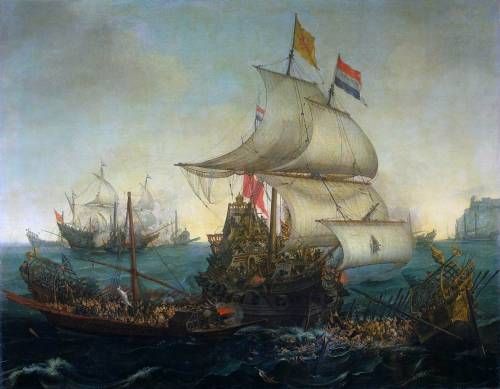The Dutch attempt but fail to capture Macau.
The Battle of Macau in 1622 was a conflict of the Dutch-Portuguese War fought in the Portuguese settlement of Macau, in southeastern China. The Portuguese, outnumbered and without adequate fortification, managed to repel the Dutch in a much-celebrated victory on 24 June after a three-day battle. To date, the battle remains the only major engagement that was fought between two European powers on the Chinese mainland.
The battle was the most decisive defeat ever dealt by the Portuguese to the Dutch in the Far East, as the losses of the attackers far outweighed those of the defenders. The lowest Portuguese estimate claims they had killed over three hundred of their enemies on that day, while most Portuguese cite six or eight hundred as the total number killed. The official Dutch tally lists the number of deaths at 136 and wounded at 126, without taking the Bandanese and Japanese mercenaries into account. Historian C. R. Boxer suggests that the actual death toll might well be around three hundred if the Bandanese and Japanese dead were counted. Casualties among Dutch officers were especially serious, as seven captains, four lieutenants, and seven ensigns were lost in the battle. In addition to the loss of personnel, the Dutch also lost all their cannons, flags, and equipment. In comparison, the Portuguese deaths numbered only four Portuguese, two Spaniards, and a few slaves; about twenty were wounded. At Batavia, Jan Pieterszoon Coen was extremely bitter about the outcome of the battle, writing “in this shameful manner we lost most of our best men in this fleet together with most of the weapons.”

